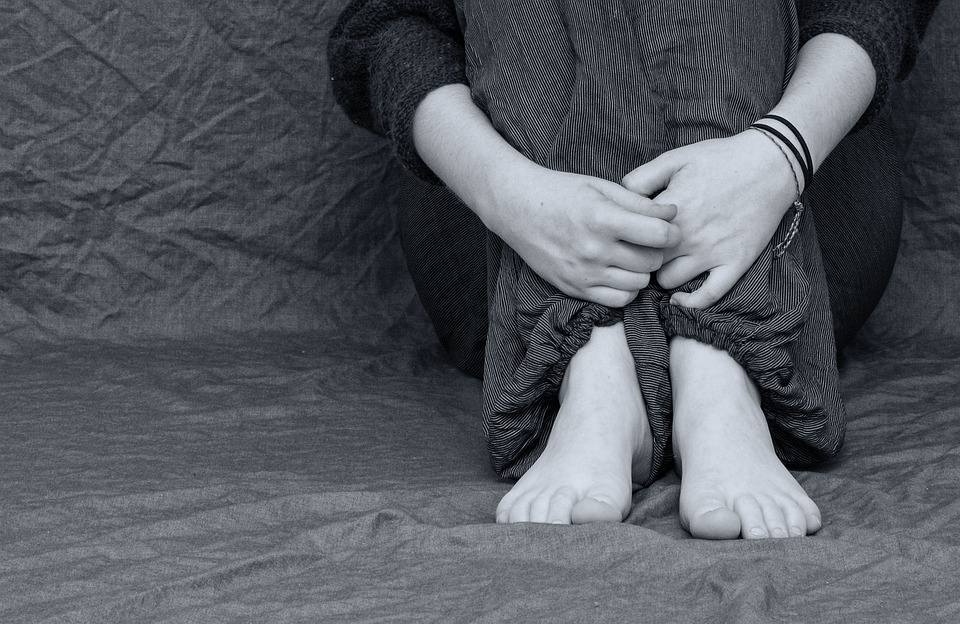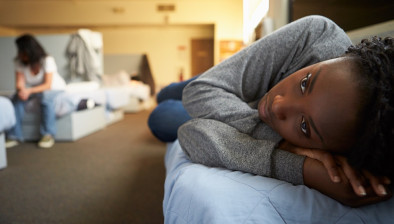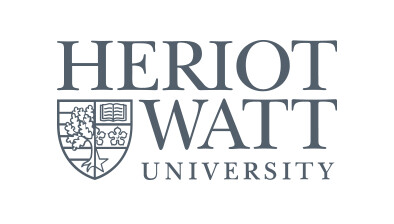Support system failures trapping vulnerable women in cycles of harm, finds new report

A hard-hitting report published today has outlined five key priorities to radically improve support for women facing homelessness, addiction and involvement with the criminal justice system in the UK.
Hard Edges: The Reality for Women Affected by Severe and Multiple Disadvantage, written by the Institute of Social Policy, Housing, Equalities Research (I-SPHERE) at Heriot-Watt University and funded by the Oak Foundation, exposes the trauma and exclusion endured by this vulnerable group.
It highlights how women are being failed again and again by support services which are often poorly coordinated and unable to meet their complex needs. The report finds women typically enter a spiral following prolonged exposure to violence and adversity, often starting in childhood.
Many keep their difficulties hidden until hitting crisis point due to fear, stigma, and a lack of trust, and this creates further barriers to seeking support. Even when they do engage with services, women facing severe and multiple disadvantage (SMD) are often “shunted” between systems catering to just one issue, with no access to expertise that can support their overlapping challenges.
The research, which involved in-depth exploration in Belfast (Northern Ireland), Glasgow (Scotland), Stoke-on-Trent (England), and Swansea (Wales), uncovered pockets of effective, trauma-informed practice but availability depends on location in a ‘postcode lottery’, with short-term funding threatening sustainability.
While the report warns that without fundamental change, the most marginalised will remain caught in cycles of harm, it outlines that change is possible, providing a series of recommendations for national and local policymakers including:
- Sharing responsibility and risk across health, housing, justice and women’s sectors so women are not shunted between services. This will require strong leadership from central and devolved governments.
- Creating an environment where services are adequately equipped to respond to the gendered trauma and abuse affecting women. There is clear appetite for more women-only services.
- Acknowledging the magnitude of adversity these women face, challenging the stigma affecting them, and recognising that they remain a target for predatory men even after recovering.
- Earlier intervention and prevention, particularly around critical junctures like leaving care, threat of child removal and prison release.
- Valuing the expertise of frontline workers to engage women considered “hard to reach” with proper workforce support and remuneration in place.
The report warns that without concrete action across these areas, the most vulnerable women will remain trapped in a cycle of exploitation and trauma.
Professor Sarah Johnsen is the report’s lead author. Previously professorial fellow in the Institute for Social Policy, Housing and Equalities Research (I-SPHERE) at Heriot-Watt University where the research took place, she is now chair in Homelessness and Inclusion Health at the University of Edinburgh.
Professor Johnsen said: “This report confronts failings that repeatedly leave women in desperate situations without appropriate support. Whether due to underfunding, risk aversion or siloed working, public agencies are, in the main, failing to meet the needs of women experiencing severe and multiple disadvantage.
“This report shines a shocking light on the vicious cycles of harm faced by far too many women in our society. The trauma they have endured - from sexual violence to losing their children - leaves deep scars. We must challenge the systems that repeatedly fail them and break the dangerous pattern where they fall into a cycle of homelessness, substance use, and offending.
“If we do not listen to what women say they need and take coordinated action we are complicit in their continued exclusion and suffering. Solutions exist, but they require leadership, compassion and a willingness to share risk. What is needed is a whole system approach which takes adequate account of the nature and depth of trauma these women have endured. We owe it to these women to make this a turning point.”
Charlotte, 37, lives in Cheshire. With degrees in law and psychology, she was training to become a barrister. However, alcohol addiction led to experiences with the criminal justice system, and eventually she lost several jobs. As things worsened, Charlotte felt like she was spiralling. She became homeless and was placed in unsafe supported accommodation.
Charlotte explains: “When I’m unwell, I can’t ask for what I need, and that is why today’s report is so important. This research is cognisant of the fact that the burden needs to move from the women themselves and find ways to bring everything together in a flexible way that will work for individuals.
“My journey has gone through many different funnels of shame and social complexities. Many well-intentioned people kept trying to put me on the right path and I kept falling off it. They failed because the interventions didn’t speak to the nuanced experiences of the people who don’t know why they keep going off the path.
“I ended up in very unsafe homelessness accommodation and, despite having a law degree, I couldn’t advocate for the appropriateness of the services I was accessing, or their safety. I had the perception that this was just what happens to people like me, who can’t get it together despite all the help available to them. I had the belief that it was me and not the path that was the problem. I was put in accommodation with a man who had a criminal record and complex needs of his own, and no staff to oversee the safety of that dynamic.
“What women need are the right supports and the right services. I was ill with shame. I had been arrested; I was disenfranchised. I saw women with homes and families, and I couldn’t understand why I couldn’t have that. This research acknowledges that there are key areas of complex needs, but there are so many different sub sections. Women who have lost a child into care, for example, feel they can’t grieve for the loss of their child because they have done it to themselves. Services need to be conscious of how these emotions influence women in that position.”
Charlotte now works with people leaving the care sector and is a school governor. She continues: “I have a wonderful life now, but I am the same person. My core self and my values are still the same, but I can keep my job and keep my relationship and not get arrested and not wake up injured. Why is that? Because my environment has changed.
“Now I have a totally different set of supports in place. I am the same person I always was, but I am now getting up and going to work and I am a meaningful member of society whereas before I couldn’t work out how to be a meaningful part of society, so I was injuring myself and other people in the process. Nothing has changed except that I now have appropriate resources. I might be 37 but I feel like my life only started four years ago.”
Indy Cross, chief executive, Agenda Alliance, said: “At Agenda Alliance, we work with our membership of 100+ frontline organisations to amplify the voices of women experiencing multiple disadvantage, and campaign for the real policy change they need. This new report provides vital academic evidence and testimony on the depth of difficulty women are facing in all four nations.
“It shows what we have known for years: that women across the UK need accessible, specialist, trauma-informed support to tackle the gendered causes of their homelessness, addiction, and criminalisation, and services with the resource to treat their needs as interconnected. It is time women were provided with the support they deserve.
“As we enter an election year, policymakers must start listening to the significant body of research that now exists on this issue – for too long, short-termist “solutions” have been prioritised, repeatedly missing opportunities to protect women from snow-balling harm. All the evidence shows that early intervention, holistic support, and effective collaboration can transform women’s lives, and society as a result. Now, we need to see the political will, and long-term, ring-fenced funding, to deliver it.”







